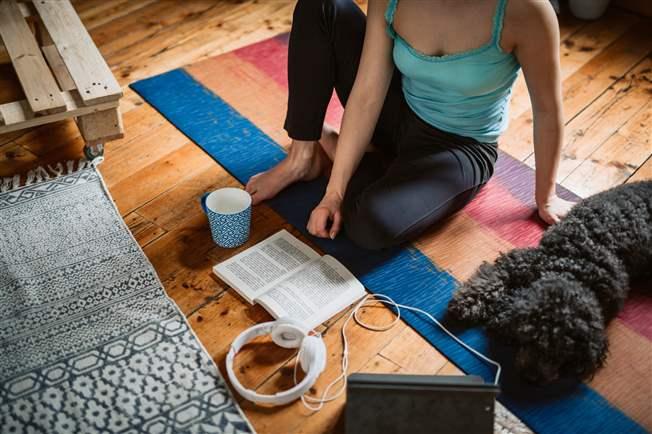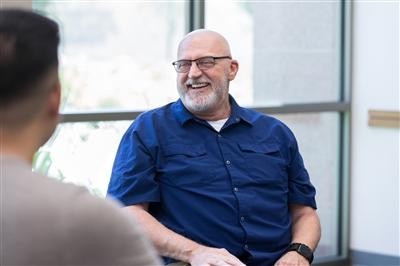What should be in your mental health first aid kit?

As the coronavirus pandemic continues, people continue to stock up on food, cleaning products and other necessary items for an unknown period of self-isolation. And these items are important; they are the things we need on a daily basis to keep ourselves and our families healthy and well.
But missing from these shopping lists are the intangible items that also help us get through a crisis—the people, attitudes and practices. These factors are important and, in addition to all of the practical, everyday items you need to get through a difficult time, you might also consider building a mental health ‘first aid kit.’
“A mental health first aid kid is a collection of practices, behaviors, intentions and strategies that help support mental and emotional sobriety. These are items that are personal to you and should be readily available to help you deal with stress, anxiety, fear or other emotions you may be feeling,” explains Alyson Kessler, a behavioral health therapist at Mirmont Treatment Center, part of Main Line Health.
How can you get started building your mental health first aid kit? Kessler explains below.
Tools for daily use

A few essential tools for daily use might include:
- Breathing exercises
- Affirmations or prayers
- Listening to music
- Practicing gratitude
- Mindfulness or meditation
- Reading a book
- Creating—think coloring, drawing, painting, cooking, sewing, etc.
Tools for use every now and then
Even if you use the practices mentioned above to help you cope with daily stressors, there will be times when you need to look outside yourself for help. It’s a good idea to have a few tools available to you so you can effectively manage your mental health in the long term. In a traditional first aid kit, think of these as the gauze and scissors; items you might not need all the time but that can be helpful for more serious needs.
Some tools you might want to have when you need additional help include:
- Counseling
- Group therapy
- Support groups
- Church social groups
- A close friend or social group you can confide in

And remember: Once you identify these tools—use them! Don’t be afraid to ask for help if you need it. Sometimes, the most effective use of our first aid kit is looking outside of it.
Tools for self-care
All of the tools listed above are technically forms of self-care, but you should also make room in your mental health first aid kit specifically for self-care practices. This includes exercising, eating a balanced and nutritious diet, sleeping, spending time outside, etc. Your physical health can make a big impact on your mental health, so make time for it and make sure that the way you treat your body reflects the way you want to treat your mind.
Once you have your kit, share it!
Once you identify what’s in your first aid kit, share it with others who may need it. If a colleague is having a bad day, share your favorite meditation or breathing app with them. If your friend is having a hard time spending so much time alone, recommend some things that you do to keep your mind and hands busy. By offering support to others, we can help them and learn more about ourselves. You may even come across some new techniques to add to your kit!
“Your mental health first aid kit can never be too full or have too many procedures to help combat stress, anxiety, and support mental health,” says Kessler.
Start the road to recovery today. Call us at 1.888.CARE.898 (227.3898) to schedule a confidential appointment and ask any questions.